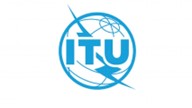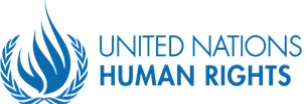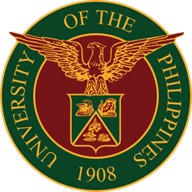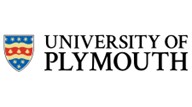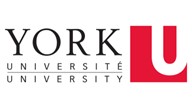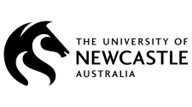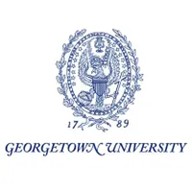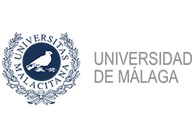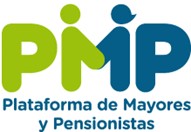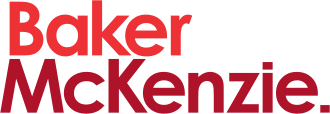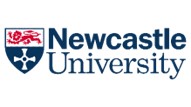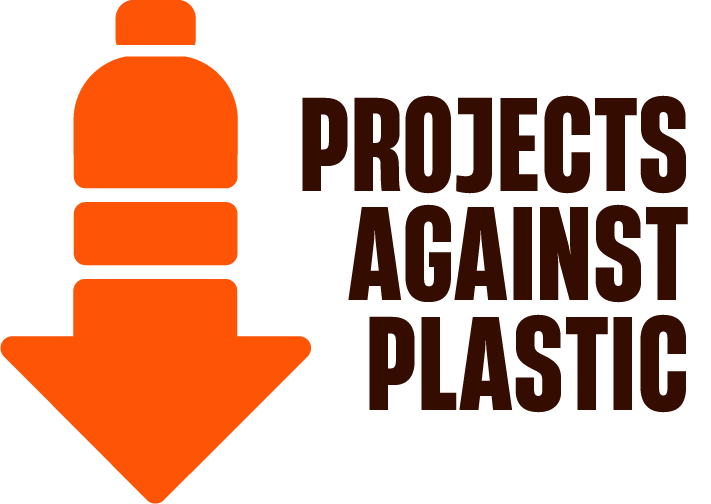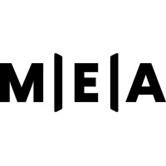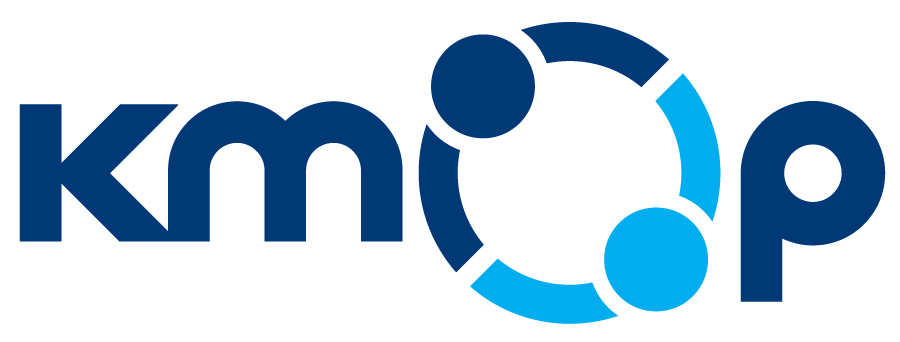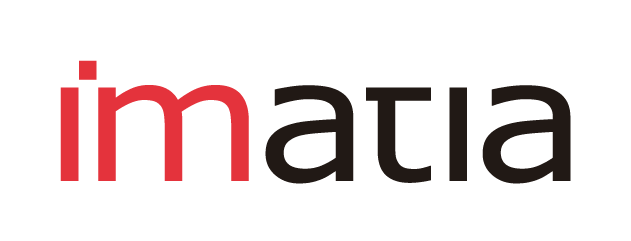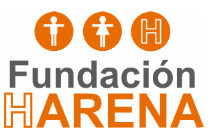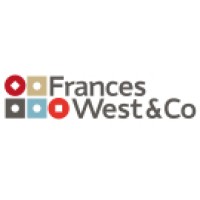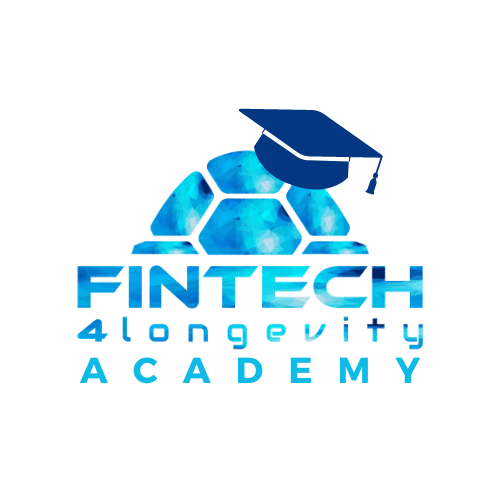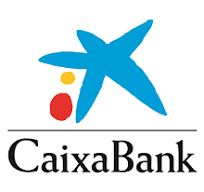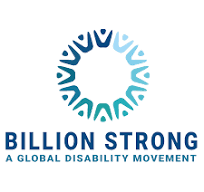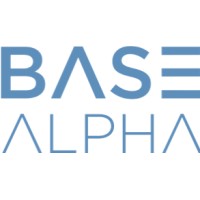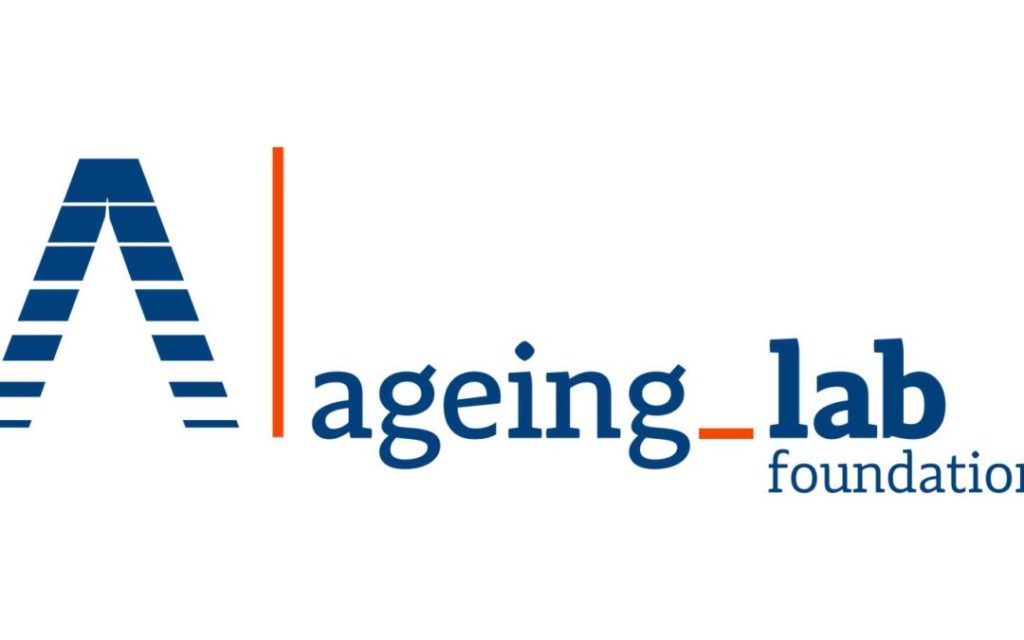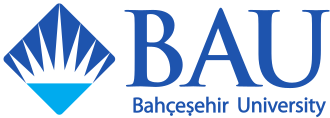GIA Partners
We are the Healthcare business of Merck, and the only pharmaceutical company that is developing solutions along the whole “circle of life”. For over 350 years, patients have always been at the heart of everything we do. Our pioneering work in cancer treatment is focused on discovering, developing and delivering science-driven breakthrough therapies that turn cancer patients into cancer survivors. Our tireless passion for R&D as well as a creative and focused approach help accelerate innovation in oncology and immuno-oncology.
The only tripartite U.N. agency, since 1919 the ILO brings together governments, employers and workers of 187 Member States , to set labour standards, develop policies and devise programmes promoting decent work for all women and men.
The unique tripartite structure of the ILO gives an equal voice to workers, employers and governments to ensure that the views of the social partners are closely reflected in labour standards and in shaping policies and programmes.
The main aims of the ILO are to promote rights at work, encourage decent employment opportunities, enhance social protection and strengthen dialogue on work-related issues.
Established in 1951, IOM is the leading intergovernmental organization in the field of migration and works closely with governmental, intergovernmental and non-governmental partners. With 175 member states, a further 8 states holding observer status and offices in 171 countries, IOM is dedicated to promoting humane and orderly migration for the benefit of all. It does so by providing services and advice to governments and migrants.
IOM works to help ensure the orderly and humane management of migration to promote international cooperation on migration issues, to assist in the search for practical solutions to migration problems and to provide humanitarian assistance to migrants in need, including refugees and internally displaced people.
The IOM Constitution recognizes the link between migration and economic, social and cultural development, as well as to the right of freedom of movement.
UN Women is the United Nations entity dedicated to gender equality and the empowerment of women. A global champion for women and girls, UN Women was established to accelerate progress on meeting their needs worldwide.
UN Women supports UN Member States as they set global standards for achieving gender equality, and works with governments and civil society to design laws, policies, programmes and services needed to ensure that the standards are effectively implemented and truly benefit women and girls worldwide. It works globally to make the vision of the Sustainable Development Goals a reality for women and girls and stands behind women’s equal participation in all aspects of life.
UN Women also coordinates and promotes the UN system’s work in advancing gender equality, and in all deliberations and agreements linked to the 2030 Agenda. The entity works to position gender equality as fundamental to the Sustainable Development Goals, and a more inclusive world.
ECOSOC is the acronym of Economic and Social Council, one of the six main organs established by the UN Charter in 1946. It is the United Nations’ central platform for reflection, debate, and innovative thinking on sustainable development in economic, social and environmental fields. Moreover, ECOSOC coordinates the work of the UN and the specialised Agencies.
Rooted in the United Nations Charter and guided by the transformative 2030 Agenda for Sustainable Development, the UN Department of Economic and Social Affairs (UN DESA) upholds the development pillar of the United Nations.
They bring the global community together to work towards common solutions to the world’s most pressing problems. They help countries translate their global commitments into national action in the economic, social and environmental spheres.
UN DESA is a pioneer of sustainable development and the home of the Sustainable Development Goals (SDGs), where each goal finds its space and where all stakeholders can do their part to leave no one behind. They are a leading analytical voice for promoting inclusion, reducing inequalities and eradicating poverty, and a champion for tearing down the barriers that keep people in poverty.
UN DESA helps countries make informed decisions by providing a wealth of information through our publications and databases and through our support for international deliberations at the United Nations General Assembly, Economic and Social Council (ECOSOC), Commissions, Forums and other bodies.
Step by step, UN DESA works towards sustainable development for all.
ITU is the United Nations specialized agency for information and communication technologies (ICTs). The Organization is made up of a membership of 193 Member States and more than 1000 companies, universities and international and regional organizations. Headquartered in Geneva, Switzerland, and with regional offices on every continent, ITU is the oldest agency in the UN family – connecting the world since the dawn of the telegraph in 1865.
They facilitate international connectivity in communication networks. They allocate global radio spectrum and satellite orbits, develop the technical standards that ensure networks and technologies connect seamlessly, and work to improve access to digital technologies in underserved communities worldwide. ITU works to bring digital connectivity to everyone, providing a trusted, multilateral platform to broker international agreements and standards, share knowledge, build capacity, and work with members and partners to spread access to technology around the world.
As the United Nations lead agency on international development, UNDP works in 170 countries and territories to eradicate poverty and reduce inequality. They help countries to develop policies, leadership skills, partnering abilities, institutional capabilities, and to build resilience to achieve the Sustainable Development Goals. Their work is concentrated in three focus areas; sustainable development, democratic governance and peace building, and climate and disaster resilience.
UNDP’s mandate is to end poverty, build democratic governance, rule of law, and inclusive institutions. We advocate for change, and connect countries to knowledge, experience and resources to help people build a better life.
UNDP is based on the merging of the United Nations Expanded Programme of Technical Assistance, created in 1949, and the United Nations Special Fund, established in 1958. UNDP, as we know it now, was established in 1966 by the General Assembly of the United Nations.
Founded in 1948, WHO is the United Nations agency that connects nations, partners and people to promote health, keep the world safe and serve the vulnerable – so everyone, everywhere can attain the highest level of health.
WHO leads global efforts to expand universal health coverage. They direct and coordinate the world’s response to health emergencies. And they promote healthier lives – from pregnancy care through old age. Their Triple Billion targets outline an ambitious plan for the world to achieve good health for all using science-based policies and programmes.
The Office of the High Commissioner for Human Rights (UN Human Rights) is the leading UN entity on human rights. They represent the world’s commitment to the promotion and protection of the full range of human rights and freedoms set out in the Universal Declaration of Human Rights.
Both the High Commissioner and the Office have a unique role to: Promote and protect all human rights. Help empower people. Assist Governments. Inject a human rights perspective into all UN programmes.
The United Nations Institute for Training and Research (UNITAR) provides innovative learning solutions to individuals, organizations and institutions to enhance global decision-making and support country-level action for shaping a better future.
UNITAR was created in 1963 to train and equip young diplomats from newly-independent UN Member States with the knowledge and skills needed to navigate through the diplomatic environment.
With a strategy fully focused on achieving the Sustainable Development Goals (SDGs), UNITAR supports Governments to implement the 2030 Agenda.
Our four-year strategic framework is aligned with the 2030 Agenda and uses the Sustainable Development Goals as the guiding principle for our work with the strategic objectives organized around four out of five thematic pillars of the 2030 Agenda (Peace, People, Planet and Prosperity).
The University of the Philippines (UP; Filipino: Unibersidad ng Pilipinas) is a state university system in the Philippines. It is the country’s national university, as mandated by Republic Act No. 9500 (UP Charter of 2008), giving it institutional autonomy. Originally founded by the American occupational government on June 18, 1908, it was established through the ratification of Act No. 1870 of the 1st Philippine Legislature to serve as an «advanced instruction in literature, philosophy, the sciences and arts, and to give professional and technical training» to eligible students regardless of «age, sex, nationality, religious belief and political affiliation.
The University of Plymouth is a public research university based predominantly in Plymouth, England, where the main campus is located, but the university has campuses and affiliated colleges across South West England. With 18,410 students, it is the 57th largest in the United Kingdom by total number of students (including the Open University).
York University is a public research university in Toronto, Ontario, Canada. It is Canada’s third-largest university and it has approximately 55,700 students, 7,000 faculty and staff, and over 370,000 alumni worldwide. It has 11 faculties, including the Lassonde School of Engineering, Schulich School of Business, Osgoode Hall Law School, Glendon College, and 28 research centres.
Over the last twenty years, York has become a centre for labour strife with several faculty and other strikes occurring, including the longest university strike in Canadian history in 2018.
The University of Victoria (UVic) is a public research university located in the municipalities of Oak Bay and Saanich, British Columbia, Canada.[9][10][11] Established in 1903 as Victoria College, the institution was initially an affiliated college of McGill University until 1915. From 1921 to 1963, it functioned as an affiliate of the University of British Columbia. In 1963, the institution was reorganised into an independent university. The University of Victoria is the oldest post-secondary institution in British Columbia. First established in 1903 as Victoria College, an affiliated college of McGill University, it gained full autonomy and degree-granting status through a charter on July 1, 1963.
Newcastle University is a public research university based in Newcastle upon Tyne, North East England. It has overseas campuses in Singapore and Malaysia. The university is a red brick university and a member of the Russell Group, an association of research-intensive UK universities.
The university subdivides into three faculties: the Faculty of Humanities and Social Sciences; the Faculty of Medical Sciences; and the Faculty of Science, Agriculture and Engineering. The university offers around 175 full-time undergraduate degree programmes in a wide range of subject areas spanning arts, sciences, engineering and medicine, together with approximately 340 postgraduate taught and research programmes across a range of disciplines.
Georgetown University is a private(Catholic) university in the United States, located in Washington DC.
It is the oldest Catholic university in the United States and one of the most prestigious universities in the country and the world, with highly selective admission. The university offers degree programmes in forty-eight disciplines, enrolling an average of 7 500 undergraduate students and 10 000 postgraduate students from more than 135 countries.
The University of Malaga, or UMA for short, is a public university founded in 1972. It has around 40,000 students and around 2,450 lecturers. It offers 63 undergraduate degrees and 120 postgraduate degrees, including doctoral programmes, master’s degrees and its own degrees. The courses are taught in 19 centres by professors attached to 81 departments.
The vast majority of teaching is organised around two campuses in the capital, although there are also centres in the city centre, as well as in Ronda and Antequera.
Together with the University of Seville, it is the driving force behind the Andalucía TECH project, which was awarded the category of Campus of International Excellence by the Spanish Ministry of Education.
Harvard University is a private Ivy League research university in Cambridge, Massachusetts. Founded in 1636 as Harvard College, it is the oldest institution of higher learning in the United States. Its influence, wealth, and rankings have made it one of the most prestigious universities in the world. The university is composed of ten academic faculties and the Harvard Radcliffe Institute. The Faculty of Arts and Sciences offers study in a wide range of undergraduate and graduate academic disciplines, and other faculties offer only graduate degrees, including professional degrees.
The PMP was born as a process of confluence of the most important Organisations, Federations and Confederations of the Elderly and Pensioners in the country. They represent the associative movement of the elderly (we are 15,079 associations, with more than 5,746,000 individual members) and facilitate dialogue with the public authorities and other social actors.
The values that inspire and guide the Platform’s actions are unity, internal cohesion, democratic functioning, equality, non-discrimination, solidarity, social inclusion, transparency, political or ideological independence and neutrality, equality between women and men, respect for diversity and environmental sustainability (SDGs), and ethical behaviour.
Santalucía is made up of a team of professionals with extensive experience in the sector. That is why we work together to offer you services adapted to your needs. The Impulsa programme for startups and innovative projects is looking for the best talent to turn them into great services. In the Santalucía Group, sustainability is a key vector of the business strategy, both in the development of the activity and in the relationship with the environment.
The University of Foggia is an Italian state university founded in 1999. Its ability to adapt its educational offer to the needs of the context in which it operates, passes through an attractive educational proposal that combines tradition and innovation. In fact, the mission of the University of Foggia is summarised in the desire to keep its best forces in the territory to produce value and development. In recent years, the University has positioned itself as a cultural, social and economic point of reference of a change in progress, emphasising its role as an active player in the process.
Baker McKenzie brings insight and foresight to clients across more than 70 global offices. Our team of 13,000 people, including over 6,500 lawyers and tax professionals, works alongside our clients to drive growth that is both sustainable – and inclusive.
The global business community is more interconnected than ever before. Opportunities and risks spill across different markets, sectors and areas of law, so a connected perspective is essential in delivering business objectives while mitigating risk. Their integrated client solutions provide seamless advice, underpinned by deep practice and sector expertise, as well as first-rate local market knowledge.
Newcastle University is a public research university based in Newcastle upon Tyne, North East England. It has overseas campuses in Singapore and Malaysia. The university finds its roots in the School of Medicine and Surgery (later the College of Medicine), established in 1834, and the College of Physical Science (later renamed Armstrong College), founded in 1871. The university subdivides into three faculties: the Faculty of Humanities and Social Sciences; the Faculty of Medical Sciences; and the Faculty of Science, Agriculture and Engineering. It offers around 175 full-time undergraduate degree programmes in a wide range of subject areas spanning arts, sciences, engineering and medicine, together with approximately 340 postgraduate taught and research programmes across a range of disciplines.
Charity on a mission to eradicate single used plastic within our hospitality and food sector. Empowering the stakeholder and food lovers to find alternative ways to provide healthy food and be part of the solution. Projects : Curry & Conversation – A workshop to engage with curry house owners to discuss plastic usage and alternative solutions Youth Activity – Engaging youth to fight for their future via various different activity including Beach Clean, Litter Picking and Educational tours and workshops Planting Trees- Action to mark a bond between the planet and us, so we can think about making other changes in our lifestyle to save the planet.
Modern Elder Academy is a social venture committed to socio-economic diversity.
MEA empowers people to face and navigate life transitions that might be tough—like divorce, career shifts, and empty nesting. But the curriculum doesn’t just touch on the serious stuff—it can inspire renewed energy and new experiences. Students cultivate creativity and rediscover play. They build the confidence to try a new hobby, or return to an old passion project. Students go deep within themselves and collect meaningful outside perspectives. They learn how to live in the present while also defining the legacy they want to leave behind.
KMOP, founded in 1977, is one of the oldest civil society organizations in Greece, with extensive experience in direct provision of social services and implementation of social initiatives. KMOP is dedicated to making a positive social impact through research and innovative initiatives that address critical social issues, inform public debate and help shape policy, nationally and internationally. Their mission is to contribute to effective social-policy design and to lead impactful programmes that promote individual well-being, reduce inequalities, eliminate vulnerabilities, and foster inclusive and sustainable social growth.
Imatia positions itself as a technology company that researches, designs and develops technologies that simplify and accelerate the process of creating, deploying and operating enterprise-scale information systems. This activity is focused on the recognized need of software development organizations to increase their productivity in developing and maintaining software. At Imatia we offer software products and services that help companies and public administrations around the world to improve their productivity. The software is carefully designed to achieve a very smooth user experience even in critical environments. They are based on a very reliable and fast system designed for ease of use and improved productivity.
Ruh Global IMPACT, a social enterprise whose cause is the Inclusion of People with Disabilities since 2013 we have brought disability inclusion to mainstream conversations.
Their team has implemented inclusion branding, marketing, inclusive design, accessibility strategies, innovative & engaging built environments, systems, and smart cities for clients all over the world. They provide a unique set of Disability Inclusion and Accessibility solutions with a first-hand approach to every project.
Fundación Harena is a private, independent and non-profit Foundation, created in 2007 from the personal initiative of a group of friends who, sharing the same concern, wanted to contribute their «grain of sand» to build a fairer and more committed society. They do this through home, telephone, residential and hospital accompaniment for elderly people in situations of unwanted loneliness, and by cooperating internationally in Peru and Ethiopia.
Fundación Juan Cruzado is a non-profit organisation with 20 years of experience in the care of the elderly, their families and/or carers and in the training of personnel in the socio-health sector.
They work in four areas of intervention:
Prevention (programmes to improve and/or maintain the physical-functional and cognitive autonomy of the elderly), care (for specific pathologies), rehabilitation (to treat different pathologies), training (to provide certificates of professionalism)
Empower School of Health (ESH) is a leading global digital learning and capacity building organization and has worked across 100+ countries in multiple languages to strengthen the institutional and HR capacity of global health & humanitarian programs through design and development of e-learning content; design, development, deployment, hosting, and maintenance of learning management systems; conduct training and capacity building exercise; develop learning technologies and innovation; and perform impact assessment/ measurement activities, etc. Empower has expertise in developing end-to-end solutions for digital learning, from developing technical content, digitization of content (storyboarding, authoring), deploying to a Learning Management System (LMS), to sales, marketing, and management of the course. They have developed their own learning platform and extended their services to other organizations in the health and humanitarian sector.
CaixaBank is a Spanish bank with headquarters in Valencia and operations in Barcelona and Madrid, founded in 2011 and consisting of the universal banking and insurance activities of the La Caixa group, together with the group’s stakes in the oil and gas company Repsol, the telecommunications company Telefónica and its holdings in several other financial institutions. On 26 March 2021 the merger with Bankia will take place: the CaixaBank brand remains, Bankia disappears. Thus Spain’s largest bank is born, with a significant position at European level: 664 billion in total assets, a market capitalisation of more than 16 billion euros, more than 20 million customers. It is listed on the Madrid Stock Exchange (CABK) and is part of the IBEX-35 index.
Billion Strong is an identity and empowerment organisation designed to bring together the billions of voices of people with disabilities. They are a global community of people with lived experience of disability that will also celebrate our allies and accomplices. They are creating a fully accessible platform that will allow the global community to connect with each other and
with companies, governments and organisations of people with disabilities. With the aim of empowering the community through connection.
Base Alpha is rooted in the region, technology and industry. Our background is in commercialising deep technology within established industries – seamlessly weaving the path for both revenue and innovation
If you would like to learn more about how we are partnering with industry to build smart cities and digitise the tracing, trade and infrastructure of entire industries across the globe please get in touch.
Ageing Lab is an Andalusian foundation, created in 2013, with the aim of becoming a benchmark in the creation and transfer of ageing and technology applied to ageing, through the university-business binomial. It arises from the concern of professionals in these two fields, to build a society for all ages in a context of social change, whose most significant characteristics are the ageing of the population and the increase in life expectancy. It offers solutions to the challenge of ageing through the creation and transfer of knowledge.
It is considered one of the best privately owned universities in Turkey and is found on the list of top 10 Universities in Turkey.
It aims to prioritize research and development for the production, preservation and dissemination of knowledge that raises the living standards of our country and humanity through higher scientific studies, especially those in fields of excellence; It forms global individuals equipped with individual and professional competencies of the 21st century, making a difference with its innovative initiatives towards the goals of sustainable development, with its contemporary educational models developed based on pioneering educational methods and technologies; It is a leading global university that contributes to society locally and globally with its products and collaborations with its stakeholders.

What’s next?! Is a social venture whose mission is to to empower Transitioners (mid-late career individuals and self-described retirees) lead engaged and purposeful lives in their “third act” of life. Our vision is to help create a world where age is no barrier to change, growth, achievement and purpose.








